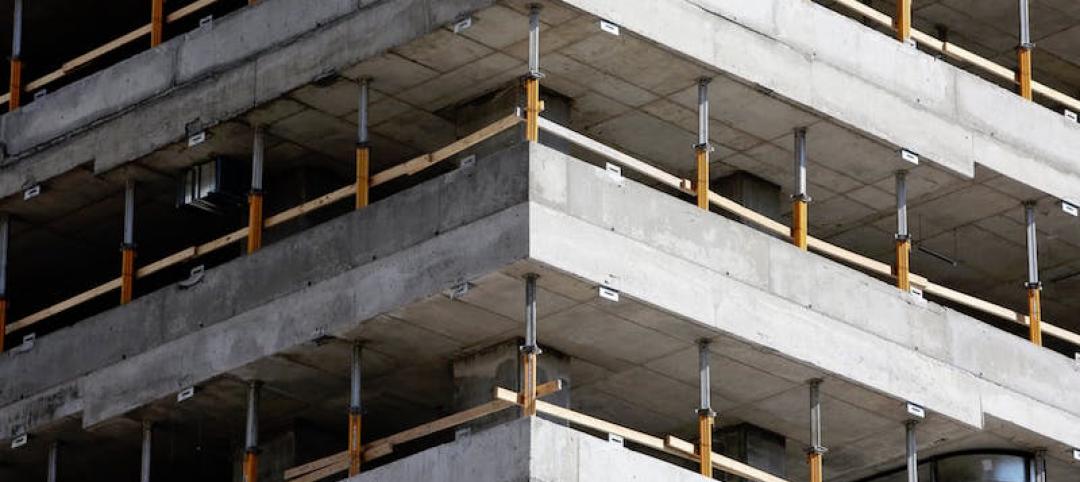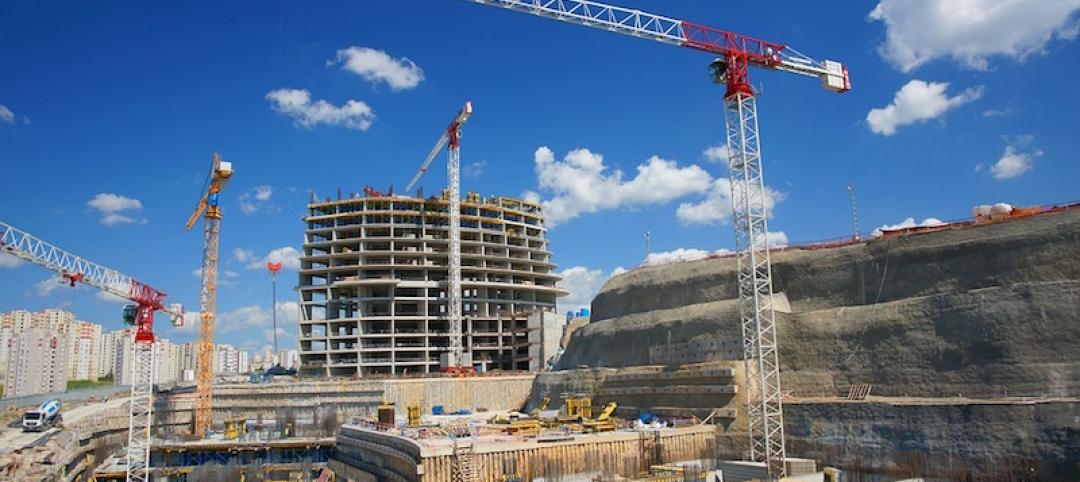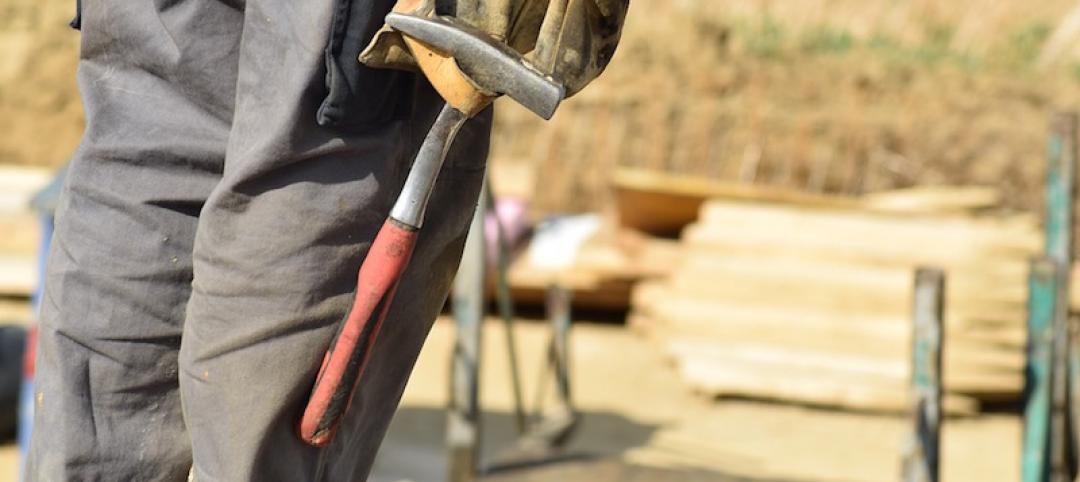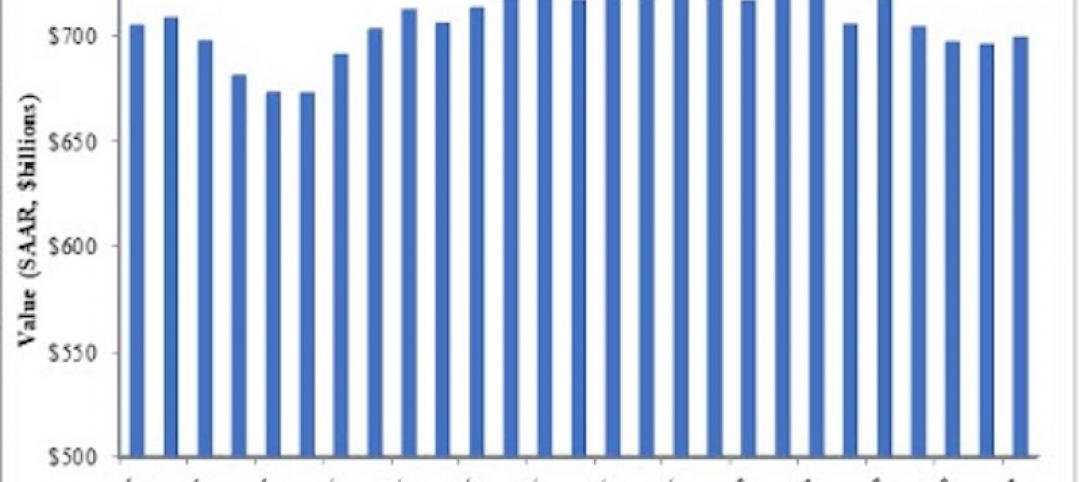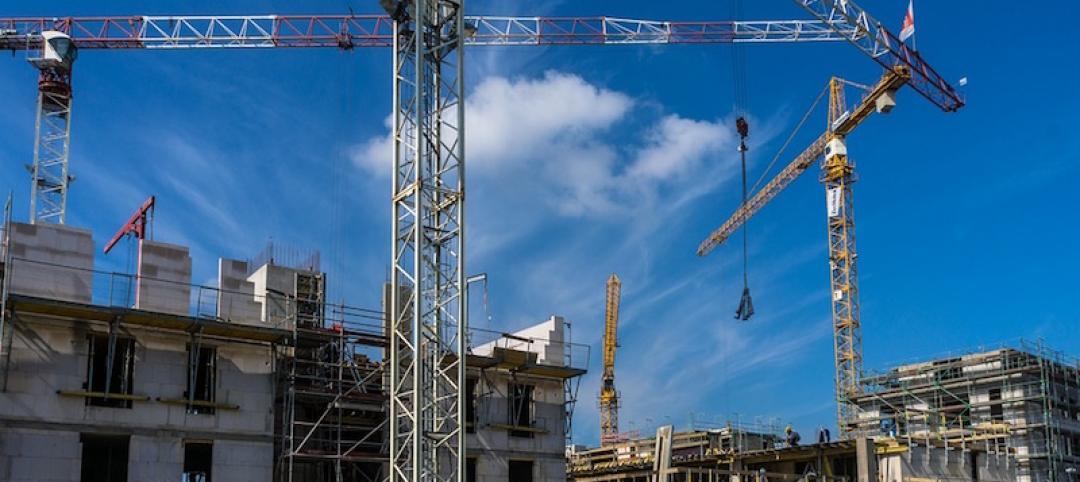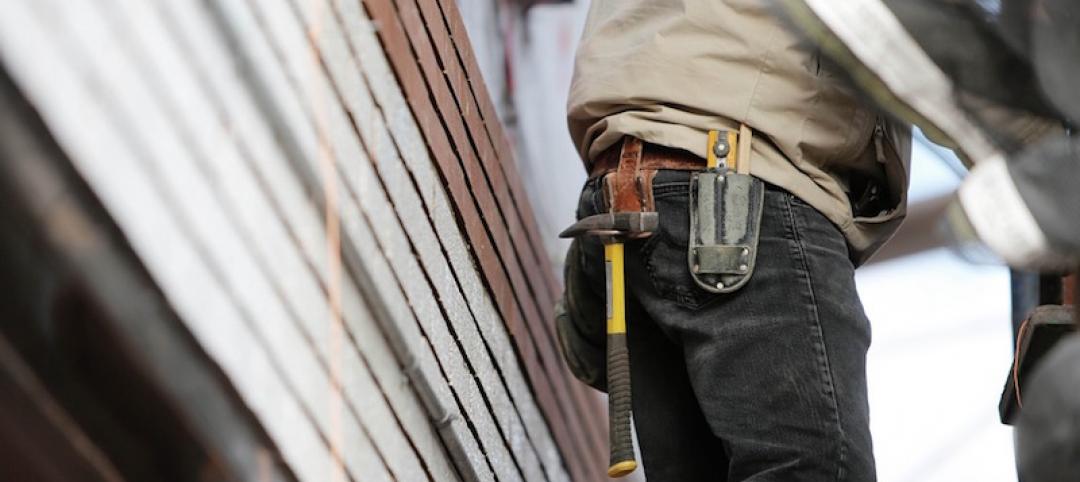Nonresidential construction spending fell to a two-year low in March as contractors struggled with slumping demand for most project types and growing shortages of materials, transport, and workers, according to an analysis of new federal construction spending data by the Associated General Contractors of America. Officials with the association said project cancellations and widespread supply chain problems are hindering the industry’s recovery.
“Every major category of private nonresidential projects has declined over the past year, while public construction spending is also deteriorating rapidly,” said Ken Simonson, the association’s chief economist. “Unfortunately, the widespread and growing backlogs for key materials and shortages of trucking and rail services to deliver goods mean that even projects that are underway are likely to take longer to complete.”
Construction spending in March totaled $1.51 trillion at a seasonally adjusted annual rate, an increase of 0.8% from the pace in February and 5.3% higher than in March 2020. However, the year-over-year gain was limited to residential construction, Simonson noted. That segment jumped 1.7% for the month and 23% year-over-year. Meanwhile, combined private and public nonresidential spending declined 1.1% from February—the fourth consecutive monthly decrease—and 7.4% over 12 months.
Private nonresidential construction spending fell 0.9% from February to March and 9.1% since March 2020, with year-over-year decreases in all 11 subsegments. The largest private nonresidential category, power construction, retreated 8.3% year-over-year and 0.4% from February to March. Among the other large private nonresidential project types, commercial construction—comprising retail, warehouse and farm structures—slumped 8.8% year-over-year and 0.5% for the month. Manufacturing construction tumbled 7.8% from a year earlier and 1.3% in March. Office construction decreased 4.2% year-over-year and 0.4% in March.
Public construction spending slumped 4.6% year-over-year and 1.5% for the month. Among the largest segments, highway and street construction declined 10.9% from a year earlier and 2.2% for the month, while educational construction decreased 4.0% year-over-year and 2.0% in March. Spending on transportation facilities declined 0.9% over 12 months but rose 1.8% in March.
Association officials urged Congress and the Biden administration to work together to increase investments in infrastructure. And they continued to call on the President to take steps to address rapidly rising materials prices, including by ending tariffs on key construction materials like steel and lumber. They cautioned that without the new investments and supply chain relief, the industry would have a hard time recovering.
“Federal officials are pushing for an economic recovery while at the same time hanging on to dated policies, like tariffs, that are holding growth back,” said Stephen E. Sandherr, the association’s chief executive officer. “Boosting infrastructure investments and tackling supply chain problems will go a long way in unleashing demand for new construction workers.”
Related Stories
Market Data | Nov 15, 2017
Architecture Billings bounce back
Business conditions remain uneven across regions.
Market Data | Nov 14, 2017
U.S. construction starts had three consecutive quarters of positive growth in 2017
ConstructConnect’s quarterly report shows the most significant annual growth in the civil engineering and residential sectors.
Market Data | Nov 3, 2017
New construction starts in 2018 to increase 3% to $765 billion: Dodge report
Dodge Outlook Report predicts deceleration but still growth, reflecting a mixed pattern by project type.
Market Data | Nov 2, 2017
Construction spending up in September; Down on a YOY basis
Nonresidential construction spending is down 2.9% on a year-over-year basis.
Market Data | Oct 19, 2017
Architecture Billings Index backslides slightly
Business conditions easing in the West.
Industry Research | Oct 3, 2017
Nonresidential construction spending stabilizes in August
Spending on nonresidential construction services is still down on a YOY basis.
Market Data | Sep 21, 2017
Architecture Billings Index continues growth streak
Design services remain in high demand across all regions and in all major sectors.
Market Data | Sep 21, 2017
How brand research delivers competitive advantage
Brand research is a process that firms can use to measure their reputation and visibility in the marketplace.
Contractors | Sep 19, 2017
Commercial Construction Index finds high optimism in U.S. commercial construction industry
Hurricane recovery efforts expected to heighten concerns about labor scarcities in the south, where two-thirds of contractors already face worker shortages.
Multifamily Housing | Sep 15, 2017
Hurricane Harvey damaged fewer apartments in greater Houston than estimated
As of Sept. 14, 166 properties reported damage to 8,956 units, about 1.4% of the total supply of apartments, according to ApartmentData.com.



